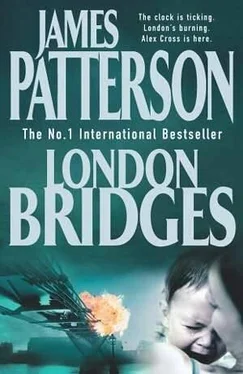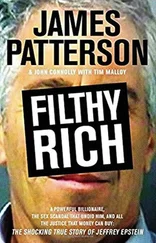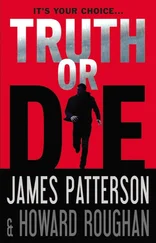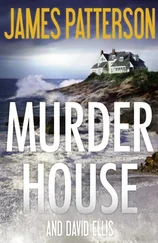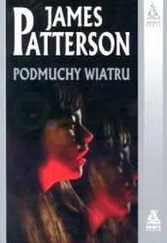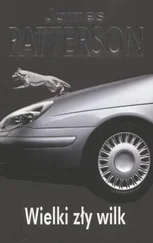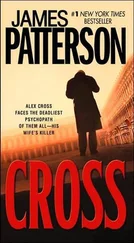"Last chance to talk," I said. "Remember, you're just a gnat to us."
"I didn't sell anything to anyone here in France! I sell in Angola, for diamonds!" Nikitin said.
"I don't care, and I don't believe you!" Captain Coridon shouted at the top of his voice. "Get him out of here."
"I know something!" Nikitin suddenly blurted out. "The suitcase nukes! The number is four. It's al Qaeda who's behind it. Al Qaeda made the plan! They call the shots. The prisoners of war-everything."
I turned to the French policemen and shook my head. "The Wolf gave him up to us. And he's not going to be pleased with his 'performance.' He'll kill him for us. I don't believe a word he just said."
Nikitin looked at the three of us, then he spit, " Al Qaeda! Fuck you if you don't like it, or believe it."
I stared back at him. "Prove what you're saying. Make us believe you. Make me believe you, because I don't."
"All right," Nikitin said then. "I can do that. I'll make all of you believers."
As soon as I arrived back at the Préfecture, Martin Lodge caught up with me. "Let's go!" He started to pull me along.
"What? Go where?" I looked at my watch-something I seemed to be doing every couple of minutes now. It was 10:25.
"A raid is going down in a few minutes. The hideout that the Russian gave you-it's real."
Martin and I hurried upstairs to the crisis room at police headquarters. My old pal Etienne Marteau met us and guided us to a row of monitors set up to view the raid. Everything was happening incredibly fast for a change. Too fast maybe, but what choice did we have?
Marteau said, "They're confident, Alex. They coordinated with the power authority, EDF-GDF. The power grid in the area goes down and then they go in."
I nodded at what he was saying and watched the screens in front of us. It was strange to be once removed from the action. Then it was happening! French soldiers appeared out of nowhere, dozens of them. They wore RAID jackets: Recherche, assistance, intervention et dissuasion. They carried assault rifles.
The soldiers rushed toward a small town house that looked harmless enough. They broke down the front door. It happened in seconds.
A UBL, a French version of the Hummer, appeared and crashed through a wooden gate in the rear. Soldiers jumped from the UBL.
"We'll see soon enough," I said to Martin. "RAID is good at what they do?"
"Yes, they are skillful at destruction and death."
A couple of the French police were miked and carried cameras, so we got to see and hear much of the raid as it happened. A door was thrown open, a gun fired from inside, then a blaze of return fire.
Someone's shrill scream, the sound of a body thumping against the floorboards.
Two gunmen ran out into a narrow hallway. Both in their underwear. Shot down before they knew what hit them.
A half-naked female with a handgun-shot in the throat.
"Don't kill them all," I muttered at the monitor.
A Cougar helicopter swooped down and more commandos appeared. Inside the house, soldiers swarmed into a bedroom, then fell on a man lying on a cot. They took him alive, thank God.
Other terrorists were surrendering, their hands held high.
Then more rapid gunshots, off camera this time.
A suspect was marched down the hall with a gun held to his head. An older man. The Wolf? Was it possible they had captured him? The policeman with the gun was smiling as if he had scored something big. The raid was certainly fast and efficient. At least four of the terrorists had been captured alive.
Then we waited impatiently for news. The cameras at the raid site were shut down. We waited some more.
Finally, about three in the afternoon, an army colonel stood at the front of the room in the crisis center. Every seat was taken; there was no more standing room; the tension was almost unbearable.
The colonel began, "We have identified the prisoners, those who are alive. One from Iran, a Saudi, a Moroccan, two Egyptians. A cell. Al Qaeda. We know who they are. It is doubtful that we caught the Wolf. It is also doubtful that these terrorists were involved in the threat to Paris. I am sorry to give you bad news at this late hour. We did our best. But he remains a step ahead of us. I'm sorry."
The terrible, "final" deadline was so close now, and no one had any more information on what would happen next. We seemed to have run out of options to stop the Wolf.
At 5:45, I was one of several nervous men and women climbing out of dark Renaults and then hurrying toward the tall ironwork gates of the Ministère de l'Intérieur building for a meeting with the DGSE, which is the French equivalent of our CIA. The front gates were immense. Like supplicants entering a cathedral, we seemed small and insignificant as we passed through them. I felt small and insignificant, as well as at the mercy of higher powers, and not just God.
The gates opened onto a grand courtyard, a vast expanse of cobblestones, and I was reminded of the horse-drawn carriages that had once rolled through these very gates. Had there been progress in the world since then? It didn't seem like it on that particular day.
I walked with other police officers, government ministers, and directors into a magnificent entry hall with a marbled pink and white tile floor. Armed guards lined the staircase. Hardly anyone spoke on the way up. There was only the dull sound of our plodding footsteps, the occasional nervous cough. It was possible that within the hour, Paris, London, Washington, and Tel Aviv would be bombed and thousands would die. There could be a much higher number of casualties. A hundred thousand or more was a possibility.
A Russian gangster is doing this? One with mysterious ties to al Qaeda? We are at his mercy now, aren't we? How incredibly strange.
The meeting was in the Salle des Fêtes, and once again I couldn't help wondering what I was doing there. I was the American representative in Paris because the FBI wanted me there, because there was a chance that I could make a difference with my experience as a psychologist and homicide detective, because something tragic might have happened to the Wolf in Paris a long time ago. We still hadn't figured out what.
Inside the main hall, tables had been arranged in a U shape and covered with plain white fabric. Propped on easels were laminated maps of Europe, the Middle East, and the United States. The target areas were circled in thick red crayon. Crude, but effective.
A dozen or more TV monitors were up and running. So was a state-of-the-art teleconferencing system. There were more gray and blue suits than usual, more important people, more obvious power on display. For some reason, I noticed several pairs of rimless titanium eyeglasses-the ever-fashionable French.
Live scenes from London, Washington, Paris, and Tel Aviv played on the TV monitors mounted on the walls. The cities were quiet. Most of the army and police were inside as well. Etienne Marteau came and sat beside me. Martin Lodge had already returned to London.
"What do you think our chances are, realistically, here in Paris, Alex?" Etienne asked.
"Etienne, I don't know what's happening. No one does. Maybe we stopped the main cell of terrorists earlier. My guess is that everything has been leading up to today's deadline. I think the Wolf knew how difficult it would be to pull this together. Something happened to him here in Paris. We still don't know what it is. What can I say? We're out of time. We're fucked."
Suddenly, Etienne sat up straight in his chair. "My God, it's President Debauney."
Aramis Debauney, the French president, looked to be in his mid-fifties and was very well dressed for the occasion, very formal. He was a compact man with slicked-back silver-gray hair and a pencil-thin mustache, and he wore wire-rimmed eyeglasses. He looked somewhat calm and in control of his emotions as he strode quickly to the front of the room, and began to talk. You could hear a pin drop.
Читать дальше
